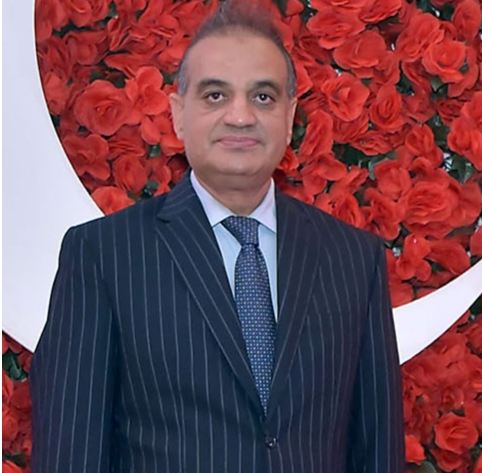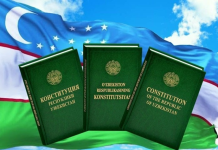“The current ruling alliance appears powerful on the surface. With the judiciary’s decision gifting them enhanced parliamentary strength, they now wield near-absolute authority. But this power is conditional, fragile, and temporary. History tells us that the moment this “same page” narrative with the establishment fades, the very powers that elevated them will become their undoing”
Ansar Mahmood Bhatti
The recent Supreme Court decision regarding the distribution of reserved seats in the National Assembly has sent shockwaves across Pakistan’s political spectrum. By denying Pakistan Tehreek-e-Insaf (PTI) its share of reserved seats and directing that these be distributed among other political parties, the apex court verdict appears to have shifted the balance of parliamentary power .
With this verdict, the ruling coalition—comprising PML-N, PPP, and allied parties—is poised to gain a two-thirds majority in the National Assembly. This supermajority, made possible not by electoral strength but by judicial endorsement, has been rightly labelled by many as an undemocratic, even unjust, outcome. Whether or not PTI fulfilled the legal prerequisites to claim these seats is beside the point; what matters is that the ruling parties, who themselves did not contest these seats, are now reaping the political dividends. This manufactured majority is not a reflection of the people’s mandate—it is a result of ‘judicial engineering’, and it will have long-lasting consequences for Pakistan’s political landscape.
This decision is a glaring example of how state institutions, instead of playing a neutral role, have once again appeared to side with the powers that be. In this case, the ruling elite and the establishment seem to be the ultimate beneficiaries, while democracy lies ‘bruised and battered’. Indeed, Pakistan has never enjoyed a fully functional democratic system, but the small semblance of representative governance that did exist has now been severely undermined.
Let us be candid. The PTI government during its tenure failed on multiple fronts. Governance was chaotic, corruption reached record levels, and institutional dysfunction grew exponentially. PTI failed to live up to its lofty promises and instead indulged in political vendettas, poor policymaking, and an overall disregard for consensus-building. But does that justify the unprecedented crackdown on the party after its fallout with the establishment? Absolutely not.
The way PTI has been marginalized—its leaders jailed, its members coerced into disassociating from the party, and now, its rightful political space usurped—is not just troubling; it is dangerous. This appears to be a punishment not for incompetence, but for disobedience. PTI’s real crime was refusing to toe the line, to continue playing puppet.
The current ruling alliance appears powerful on the surface. With the judiciary’s decision gifting them enhanced parliamentary strength, they now wield near-absolute authority. But this power is conditional, fragile, and temporary. History tells us that the moment this “same page” narrative with the establishment fades, the very powers that elevated them will become their undoing. We have seen this cycle repeat with the PML-N, PPP, and now PTI. The question is: for how long will this vicious cycle continue?
This institutionalized power game is crippling the country. It has distorted the foundations of governance, hollowed out democratic institutions, and left the common citizen disillusioned and disenfranchised. With each passing day, poverty grows, corruption festers, and the gap between the rulers and the ruled widens. The state appears more interested in maintaining its internal power equilibrium than addressing the needs of its people. It is a shameful reality that we continue to celebrate IMF bailouts as achievements, rather than confronting the root causes of our economic dependence.
The ruling elite seems disconnected from the ground realities. Inflation is choking the masses, public services are deteriorating, and lawlessness is spreading. Yet, the corridors of power remain preoccupied with political maneuvering, rather than public welfare. Governance has become a sideshow to the main drama of power consolidation and political survival.
This Supreme Court verdict has not just handed over a few parliamentary seats—it has fundamentally altered the political equation of the country. It has given legitimacy to a distorted electoral outcome and has validated the exclusion of one of the largest political parties from the democratic process. The consequences of this will be far-reaching. It may create a short-term political stability for the ruling alliance, but it will do so at the cost of long-term national cohesion and democratic development.
Pakistan’s democratic journey has always been fraught with interruptions, but never before has the erosion been so systemic, so institutional, and so unapologetic. If the political class does not unite to resist this ongoing decay, the very idea of representative democracy will be rendered meaningless. What is needed now is not just an outcry from civil society and political commentators, but a serious introspection by all stakeholders—including the judiciary and the establishment—on the damage being done to the constitutional order of the country.
It is time to ask ourselves: What kind of Pakistan are we building? One where power is determined not by the ballot but by boardroom deals? One where judicial decisions tilt political fortunes? One where parties that challenge the status quo are decimated through non-political means? If this trajectory continues, then we are hurtling toward authoritarianism, whether civil or military, masked in democratic attire.
There is no doubt that PTI made grave mistakes during its tenure. It alienated allies, mishandled the economy, and eroded institutional trust. But political mistakes should be corrected through the democratic process—not by sidelining an entire party through legal, administrative, and coercive tools. Democracy demands inclusion, competition, and accountability. What we are witnessing is exclusion, manipulation, and repression.
The Supreme Court decision on reserved seats may have resolved a legal question, but it has opened a moral and political wound. The judiciary may have thought it was interpreting the constitution, but in doing so, it has added fuel to the fire of political polarization. This verdict, rather than being a triumph of law, will be remembered as a setback for democratic ideals. The road ahead for Pakistan appears even more uncertain, and unless corrective steps are taken soon, the dream of a democratic, prosperous Pakistan will remain elusive.
The first and most immediate casualty of the recent Supreme Court verdict on the distribution of reserved seats is likely to be the Pakistan Tehreek-e-Insaf (PTI)-led government in Khyber Pakhtunkhwa (KP). The decision, which has significantly altered the political calculus at the national level by denying PTI its share of reserved seats and allocating them to rival parties, is expected to embolden efforts to dislodge the provincial government in KP—a stronghold of PTI.
There is a growing consensus among influential quarters that KP, given its geo-strategic significance and security sensitivities, cannot be left under the control of a party that is perceived to be defiant and uncooperative with the federal government and other state institutions. In this context, the PTI government is increasingly being viewed as a destabilizing factor rather than a legitimate stakeholder in the democratic process.
However, replacing the PTI government in KP is not a straightforward task. Despite the political will to oust PTI, the practical question remains: who will run the province in its absence? Neither the Pakistan Muslim League-Nawaz (PML-N) nor the Pakistan Peoples Party (PPP) has the numerical strength in the KP Assembly to form a government. The only feasible political player with some presence in the province is the Jamiat Ulema-e-Islam (JUI-F), led by Maulana Fazlur Rehman. Yet, bringing the JUI-F on board is not without its complications. The party’s ideological rigidity, internal dynamics, and long-standing opposition to certain federal policies make it a difficult coalition partner.
Given these constraints, an increasingly likely scenario is the imposition of Governor’s Rule in the province. This would effectively place KP under direct federal control—an extraordinary move that may provoke legal and political challenges but is being seriously contemplated. The justification offered will likely center on maintaining law and order, national security, and the need to ensure “governance continuity.” However, such a step would also risk exacerbating the political divide and could trigger strong public and institutional reactions in KP and beyond.
Beyond the immediate provincial implications, the Supreme Court’s verdict could pave the way for deeper, more structural changes in Pakistan’s political framework. One potential and highly consequential outcome could be the introduction of a constitutional amendment aimed at formalizing the role of the Establishment in political decision-making. Such a move would, in effect, legitimize the behind-the-scenes influence that the Establishment has historically exerted over civilian governments. This would not only insulate it from criticism but also provide legal cover to its interventions in political processes, including elections, governance, and parliamentary affairs.
If pursued, this amendment would mark a significant shift in Pakistan’s constitutional order—one that would further blur the lines between civil and military domains. While proponents might argue this ensures political stability and national security, critics would view it as a step backward for democratic norms and civilian supremacy.
In sum, the Supreme Court’s verdict is not just a legal pronouncement—it is a political earthquake with aftershocks that may fundamentally reshape Pakistan’s political and constitutional architecture. KP stands on the frontlines of this unfolding drama, with its future governance structure hanging in the balance.
















